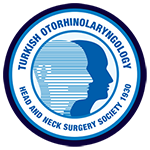Dear Editor,
Pediatric obstructive sleep apnea syndrome (OSAS) is a prevalent sleep disorder featured by upper airway obstruction during sleep, leading to oxygen desaturation and sleep disruptions. It has a 1-3% global prevalence and is linked to various health issues, including cardiovascular complications, metabolic disturbances, and neurocognitive impairments. The most important causes of OSAS are adenotonsillar hypertrophy, craniofacial anomalies, and obesity (1). Polysomnography (PSG) is considered the gold standard for OSAS diagnosis. However, the cost, time, and accessibility have constrained its use in research and clinical settings, especially in underdeveloped countries. Therefore, the Pediatric Sleep Questionnaire (PSQ), which could predict OSAS and its impact on sleep and quality of life, was constructed. Various population-specific PSQs have been developed and proved to be a valid, sensitive, and reliable instrument in detecting OSAS manifestations. According to the data released by the Ministry of Health, OSAS is a noteworthy health problem in Iraq, with a prevalence of 10.5% (2). The management of numerous pediatric health disorders has been significantly impacted by the disrupted healthcare system in Iraq as a result of the antecedent armed conflicts, violence, corruption, destroyed infrastructure, and disorganized administration. Despite the crucial role of PSQ in managing OSAS, PSQ for Iraqi OSAS children has not yet been developed.
Numerous determinants have to be considered during local PSQ construction. First, the study population should mirror the entire Iraqi pediatric population from different regions, otherwise sampling bias could impact the estimated sensitivity and specificity of the PSQ as well as Cronbach’s alpha for each sub-domain and whole questionnaire. Second, participants should not have co-morbidities that might adversely affect PSQ credibility. Third, there should be a sub-analysis of the PSQ findings based on the variables of age, gender, and body weight, as they might impact PSQ validity and reliability (3, 4). Fourth, adenoidectomy/tonsillectomy is an effective modality in treating pediatric OSAS that produces significant postoperative improvements in sleep and behavioral scores and better quality of life (5). The participants must not have undergone surgery as the constructed PSQ could not be validated in this subset of OSAS patients to define the clinical change and success of surgery. Fifth, PSG is the recommended tool to diagnose OSAS. To get better insight into the diagnostic accuracy of the constructed PSQ, employing PSG for every participant and performing a statistical comparison between each patient’s estimated total PSQ score and corresponding recorded PSG indices are solicited. However, we understand that filling that task is not feasible in Iraq due to many constraints such as restricted access to a sleep center, the need for professional traineeship in testing children, the strenuous kind of the PSG, and financial/social constraints. To maintain the health and well-being of OSAS children and to assist them in leading a positive quality of life, a compelling call of action is sent to the policymakers and researchers in Iraq to collaboratively work to formulate a local version of PSQ as an essential tool to back pediatricians and otolaryngologists in screening and monitoring OSAS in clinical and non-clinical setups.



